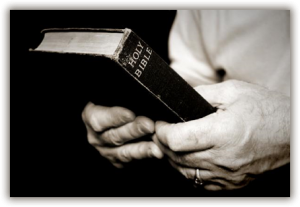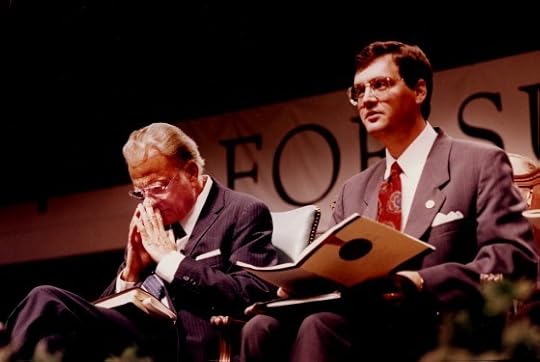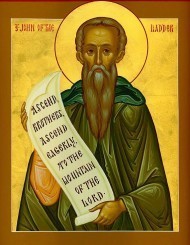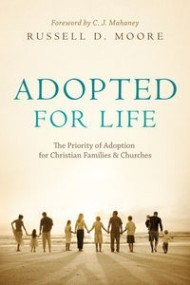Justin Taylor's Blog, page 198
August 2, 2012
10 Books (and One Letter) Every New Calvinist Needs to Read
When I first discovered Reformed theology, I was a student at Dallas Theological Seminary. I didn’t know what I should read first as I attempted to learn more. I was on my own.
Recent years have witnessed large numbers of people travelling the same path I travelled twenty years ago. In the interest of saving them time, money, and bad authors, I offer here a suggested reading list for those who are new to the Reformed faith and who wish to know where to begin in their studies.
You can read his suggestions here.
August 1, 2012
Marriage in Our Culture and According to the Bible
Tim and Kathy Keller at the recent TGC Women’s National Conference:
An Interview with Kevin DeYoung on “The Hole in Our Holiness”
A couple of years ago Richard Stearns wrote a lament/call to action entitled The Hole in Our Gospel. He argued that evangelicals have a blind spot; there is something missing. Kevin DeYoung’s latest book argues that we also have something missing in our contemporary evangelical culture when it comes to the grace-fueled pursuit of holiness. He calls it The Hole in Our Holiness: Filling the Gap between Gospel Passion and the Pursuit of Godliness. Crossway will publish it later this month. (Amazon currently has the hardcover on sale for under $10.)
Kevin and I recently sat down to talk about the book and the practice and theology behind it.
The Hole in Our Holiness from The Gospel Coalition on Vimeo.
You can also watch (or listen to) his talk at T4G, which was essentially a summary of one of the chapters:
Here are the endorsements:
“This book is vintage DeYoung—ruthlessly biblical.”
—John Piper, Pastor for Preaching and Vision, Bethlehem Baptist Church, Twin Cities, Minnesota
“My heart resonated deeply when I first heard Kevin speak on this subject. His message is a wake-up call to God’s people—timely, prophetic, and desperately needed in our day. As a gifted theologian and thinker, Kevin tackles many of the biblical intricacies and nuances of true holiness. As a pastor, he evidences sincere compassion and concern for the condition of the flock. As a fellow pilgrim, he gets to the heart of ways of thinking and living that keep us from reflecting our holy God in this dark world. As a servant and lover of Christ, he holds out a vision of the beauty and power of personal holiness.”
—Nancy Leigh DeMoss, author, Biblical Womanhood in the Home; radio host, Revive Our Hearts
“Holiness was once a central component of following Christ. But for many today, the Christian life is little more than a celebration of cheap grace and pseudo-liberty, with a high tolerance for sin. In this well-written and much-needed book, Kevin DeYoung thoughtfully points us to an unpopular yet strangely liberating truth—that God is holy and expects us to be holy. With no hint of legalism or drudgery, Kevin offers a balanced and engaging view of law and grace. Kevin DeYoung is one of my favorite writers, and this book demonstrates why. I repeatedly said ‘Yes!’ as I turned these pages. I’m convinced that Christ-followers desperately need to read, discuss, and live out the timely, God-exalting message of The Hole in Our Holiness!”
—Randy Alcorn, founder and director, Eternal Perspective Ministries; author, If God Is Good and Heaven
“Grace is too amazing to save us from sin’s guilt only to leave us under its cruel tyranny. In this book, Kevin DeYoung reminds us that the gospel is the ground of our justification and sanctification. At the same time, he reminds us of the many exhortations in Scripture to pursue godliness as the fruit of our union with Christ in the power of the Spirit. The Hole in Our Holiness offers important reflections on a crucial topic in the ongoing conversation about the joys and struggles of the Christian life.”
—Michael S. Horton, J. Gresham Machen Professor of Systematic Theology and Apologetics, Westminster Seminary California
“One might expect a book about holiness to be heavy on finger-pointing, leaning toward legalism, and embarrassingly out-of-touch. But The Hole in Our Holiness is none of those things. Instead, Kevin DeYoung gets specific about what Spirit-infused, gospel-driven effort toward holiness looks like. Going way past ‘try harder’ and ‘believe better,’ this book implants in readers not just a longing to be holy but real hope that it could happen.”
—Nancy Guthrie, Bible Teacher; author, Seeing Jesus in the Old Testament Bible Study Series
“J. C. Ryle wrote his classic Holiness out of a concern that ‘practical holiness and entire consecration to God are not sufficiently attended to by modern Christians in this country.’ It is with the same prescient concern and pastoral insight that my friend Kevin DeYoung has written what I consider to be the modern equivalent, urging a new generation of Christians to obey God’s command to ‘be holy, for I am holy.’ May The Hole in Our Holiness do for our time what Holiness did in a previous age: promote gospel-centered holiness in Christians and churches around the world.”
—C. J. Mahaney, Sovereign Grace Ministries
“I have loved being under Kevin’s teaching during my college years, specifically on this matter of holiness. This is indispensable reading material for all who desire a life of piety. Though we are fallen people, Kevin points us to our potential for godliness and how our progress in this area is of the utmost importance. Get your highlighter ready!”
—Kirk Cousins, former starting quarterback, Michigan State University; quarterback, Washington Redskins
July 31, 2012
Sproul on Luther and the Reformation
The first talk from a new teaching resource from R. C. Sproul and Ligonier Ministries:
For a good next step on learning about Luther, see Stephen Nichols’ Martin Luther: A Guided Tour of His Life and Thought, and then Roland Bainton’s Here I Stand: A Life of Martin Luther.
July 30, 2012
D. A. Carson on the Book of Revelation
D. A. Carson’s talk at the TGC Women’s Conference on Revelation 21-22: “Home at Last: The Spectacular God at the Center.”
If you want to listen to a full class from Carson on the book of Revelation, here are 26 lectures:
Revelation (part 1)
Revelation (part 2)
Revelation (part 3)
Revelation (part 4)
Revelation (part 19)
Revelation (part 5)
Revelation (part 6)
Revelation (part 7)
Revelation (part 8)
Revelation (part 9)
Revelation (part 10)
Revelation (part 11)
Revelation (part 12)
Revelation (part 13)
Revelation (part 14)
Revelation (part 15)
Revelation (part 16)
Revelation (part 17)
Revelation (part 18)
Revelation (part 19)
Revelation (part 20)
Revelation (part 21)
Revelation (part 22)
Revelation (part 23)
Revelation (part 24)
Revelation (part 25)
Revelation (part 26)
How the Reformation Happened at Southern Seminary under God
If you’ve never heard the story of how the Lord turned the tide at the Southern Baptist Theological Seminary—from a place of deep theological liberalism to a bastion of orthodox fidelity—this audio clip is worth your 15 minutes. It is from the 2000 Bethlehem Baptist Church Pastors’ Conference, where Albert Mohler was the keynote speaker. Pastor Sam Crabtree asked Dr. Mohler to tell the story of the remarkable turnaround.
You can also listen to these two talks from Mohler where he goes into more detail and sets the story in its wider context.
For a history of Southern Seminary, see this work by Greg Wills.
Pastors: Recommit Yourselves to What You Were Ordained to Do
 In a day when many pastors are downplaying serious study of God’s word and the necessary time for their own sermon preparation, I found this quote from Andrew Pervis bracing and prophetic:
In a day when many pastors are downplaying serious study of God’s word and the necessary time for their own sermon preparation, I found this quote from Andrew Pervis bracing and prophetic:
To ministers let me say this as strongly as I can. Preach Christ, preach Christ, preach Christ.
Get out of your offices and get into your studies.
Quit playing office manager and program director, quit staffing committees, and even right now recommit yourselves to what you were ordained to do, namely the ministry of the Word and sacraments.
Pick up good theology books again: hard books, classical texts, great theologians.
Claim the energy and time to study for days and days at a time.
Disappear for long hours because you are reading Athanasius on the person of Jesus Christ or Wesley on sanctification or Augustine on the Trinity or Calvin on the Christian life or Andrew Murray on the priesthood of Christ. Then you will have something to say that’s worth hearing.
Remember that exegesis is for preaching and teaching; it has no other use.
So get out those tough commentaries and struggle in depth with the texts.
Let most of what you do be dominated by the demands of the sermon as if your whole life and reason for being is to preach Christ, because it is.
Claim a new authority for the pulpit, the Word of God, Jesus Christ, over you and your people.
Commit yourself again to ever more deeply becoming a careful preacher of Christ.
Don’t preach to grow your congregation; preach to bear witness to what the Lord is doing, and let him grow your church.
Dwell in him, abide in him, come to know him ever more deeply and convertedly.
Tell the people what he has to say to them, what he is doing among them and within them, and what it is he wants them to share in.
He is up to something in your neighborhood, if you have the eyes to see and the ears to hear.
Develop a christological hermeneutic for all you do and say. Why? Because there is no other name, that’s why.
HT: Wesley Hill
Andrew Purves, The Crucifixion of Ministry: Surrendering Our Ambitions to the Service of Christ (IVP, 2007), 44-45.
July 29, 2012
An Hourlong Conversation with Paul Tripp
A couple of years ago Justin Holcomb had an hourlong conversation with Paul Tripp at the Resurgence:
Here’s an outline:
Background
Tripp’s background: 0:20-1:15
Daily drive for the Gospel: 1:15-2:45
Scholar, counselor, pastor: 2:45-3:44
The relationship between law and grace: 3:44-7:00
Marriage and the Gospel
Law, Gospel, and marriage: 7:00-9:45
The power of worship in marriage: 9:45-13:04
Our hope in a broken marriage: 13:04-14:15
Flawed dating expectations: 14:15-17:40
The importance of a lifestyle of repentance and forgiveness: 17:40-19:12
Why we get angry with our spouses: 19:12-20:25
Parenting in Grace
Parenting in faith: 20:25-25:08
How to discipline children through the Gospel: 25:08-32:00
Having sexuality conversations with your children: 32:00-37:55
People Can Change
What happens with pornography in marriage: 37:55-43:57
Can people really change? 43:57-48:08
Grace is a process, not an event: 48:08-55:06
Encouragement for ministry work: 55:06-59:00
July 27, 2012
Are You a Saint?
Saint is one of the most widely misunderstood words in our Christian vocabulary. At some point in church history, people began to call the original apostles saints, contrary to the plain meaning of the word as used in the New Testament. So now we hear of Saint Paul, Saint Peter, Saint Andrew, and the like. In the Roman Catholic tradition, people of unusual achievement are sometimes designated as saints. Among evangelicals we often think of saints as exceptionally godly and holy people.The truth is, though, every believer is a saint. That’s why Paul’s greetings in his epistles often include something such as, “To the saints who are in Ephesus” (Ephesians 1:1, see also Philippians 1:1, Colossians 1:2). Even when addressing Corinth, a church that was all messed up both theologically and morally, Paul wrote, “To the church of God that is in Corinth, to those sanctified in Christ Jesus, called to be saints. . . . (1 Corinthians 1:2). In fact, sainthood is not a spiritual attainment, or even a recognition of such attainment. It is rather a state or status into which God brings every believer. All Christians are saints.
It is a very unfortunate and unhelpful thing that we so often misunderstand this short, simple word. To use a word that applies to all Christians in a way that suggests there is a special, elite class of Christians is doubly wrong: it steals from the church important truths that God intended to communicate through the idea of sainthood, and it promotes jealousy and division within the body of Christ by suggesting a hierarchy that does not exist.
—Jerry Bridges, Who Am I? Identity in Christ (Cruciform Press, 2012), 66.
Adopted: A Past-Tense Verb Not a Present-Day Adjective
As I’ve written in the book, God used this experience to upend my whole life. He taught me much about his Fatherhood, much about the gospel, much about community, and much about the mission of the church. But people sometimes ask me, “In the years since, what have you learned about becoming a family through adoption?”
The main thing is that convictions forged there in the July heat of the former Soviet Union have only crystallized more. As the father of five now, some by that adoption and some by the more typical way, I’m as convinced as ever that adoption, into a family or into the Family of God, is “real.” There is no such thing in God’s economy as an “adopted child,” only a child who was adopted into the family. “Adopted” defines how you came into the household, but it doesn’t define you as some other sort of family member. In the Book of Romans, Paul defines all Christians, both Jew and Gentile, as having received a common “spirit of adoption” (Rom. 8:15; 9:4).
You can read the whole thing here, which also includes reflections on the lessons learned from the difficulties of adoption.
For those who want to explore more about the practice and theology of adoption with like-minded folks, remember that the national Together for Adoption conference is happening this September in Atlanta.
Justin Taylor's Blog
- Justin Taylor's profile
- 44 followers






